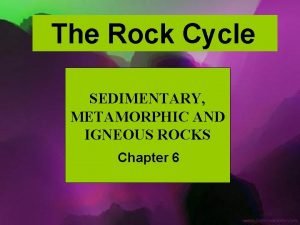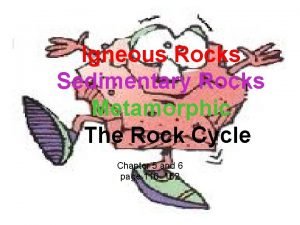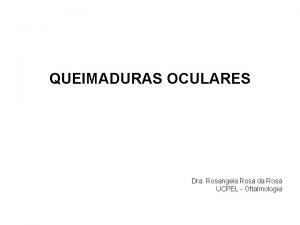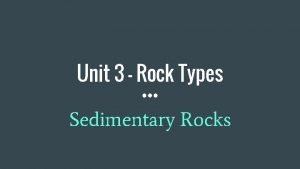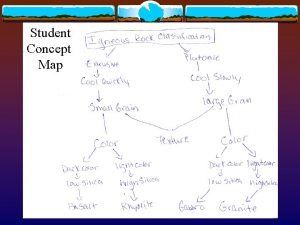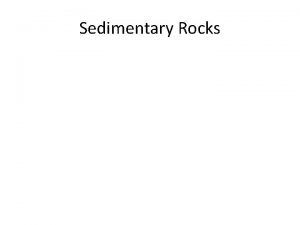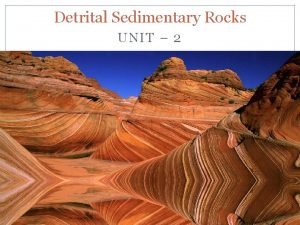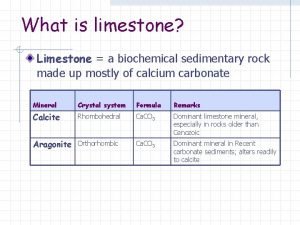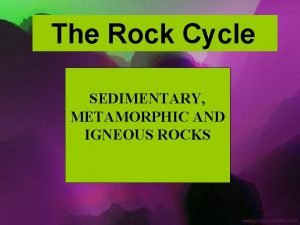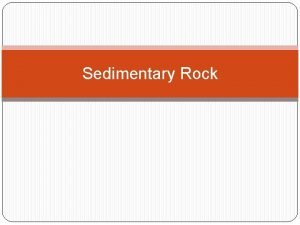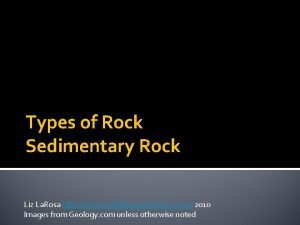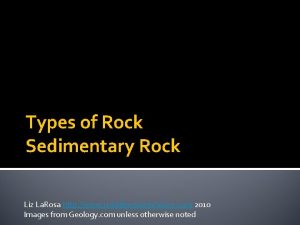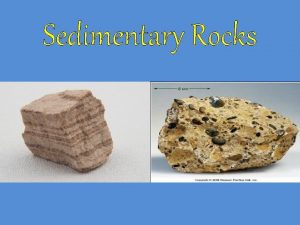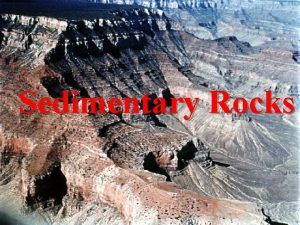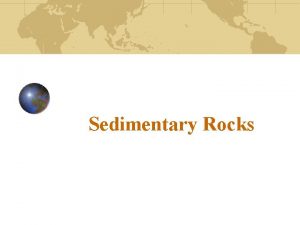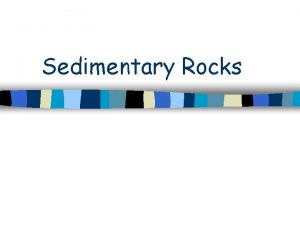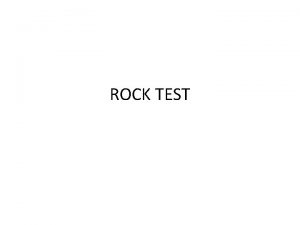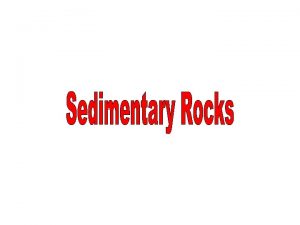Types of Rock Sedimentary Rock Liz La Rosa










- Slides: 10

Types of Rock Sedimentary Rock Liz La. Rosa http: //www. middleschoolscience. com 2010 Images from Geology. com unless otherwise noted

Review: Concept Map Igneous Rock _______ When magma pushes into surrounding rock below the Earth’s surface and cools. Cools slowly has a _______ texture ______ Forms from magma that erupts onto the Earth’s surface. (Common around volcanoes. ) Cools quickly, has a _________ texture

Sedimentary Rocks Form at or near the Earth’s surface Rocks on the surface are weathered Sediments are moved from one place to another (erosion) Sediments are deposited in layers, with the older ones on the bottom § Layers are compacted & cemented together http: //www. fi. edu/fellows/payton/rocks/create/sediment. htm

Sedimentary Rock § No heat involved §Pressure is exerted from the rock layers above causing compaction §Strata – layers of rock §Stratification – the process in which sedimentary rocks are arranged in layers

Classification of Sedimentary Rock

Sedimentary Rock Clastic – made of fragments of rock cemented together with calcite or quartz Breccia is a term most often used for clastic sedimentary rocks that are composed of large angular fragments (over two millimeters in diameter). The spaces between the large angular fragments can be filled with a matrix of smaller particles or a mineral cement that binds the rock together.

Sedimentary Rock Chemical Sedimentary – minerals crystallize out of solution to become rock Limestone is a sedimentary rock composed primarily of calcium carbonate (Ca. CO 3) in the form of the mineral calcite. It most commonly forms in clear, warm, shallow marine waters. It is usually an organic sedimentary rock that forms from the accumulation of shell, coral, algal and fecal debris.

Sedimentary Rock Organic sedimentary – remains of plants and animals (limestone & coal) Coal is an organic sedimentary rock that forms from the accumulation and preservation of plant materials, usually in a swamp environment. Coal is a combustible rock and along with oil and natural gas it is one of the three most important fossil fuels.

Sedimentary Rock Your mission today is to create a Visual Storyboard of how a sedimentary rock forms. You will select a type of sedimentary rock (clastic, organic, or chemical) You will describe how they were formed (born). (Process of formation) You will then explain how you became this type of rock.

Sedimentary Rock Include the following terms: energy, weathering, erosion, deposition, compaction, cementation, strata, stratification Make sure you describe your agent (what force caused it) of weathering and erosion. Make sure you create a name for your rock character. Be the rock you have always dreamed of!
 Sedimentary rocks turn into metamorphic
Sedimentary rocks turn into metamorphic Rock cycle drawing
Rock cycle drawing Rosangela rosa da rosa
Rosangela rosa da rosa Compaction and cementation
Compaction and cementation Rock cycle
Rock cycle Sedimentary concept map
Sedimentary concept map What is this rock called
What is this rock called Texture of sedimentary rocks
Texture of sedimentary rocks What processes turn sediment into sedimentary rock
What processes turn sediment into sedimentary rock Is limestone a biochemical sedimentary rock
Is limestone a biochemical sedimentary rock What is the metamorphic rock cycle
What is the metamorphic rock cycle
